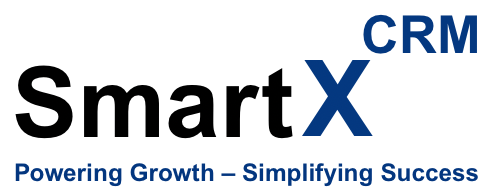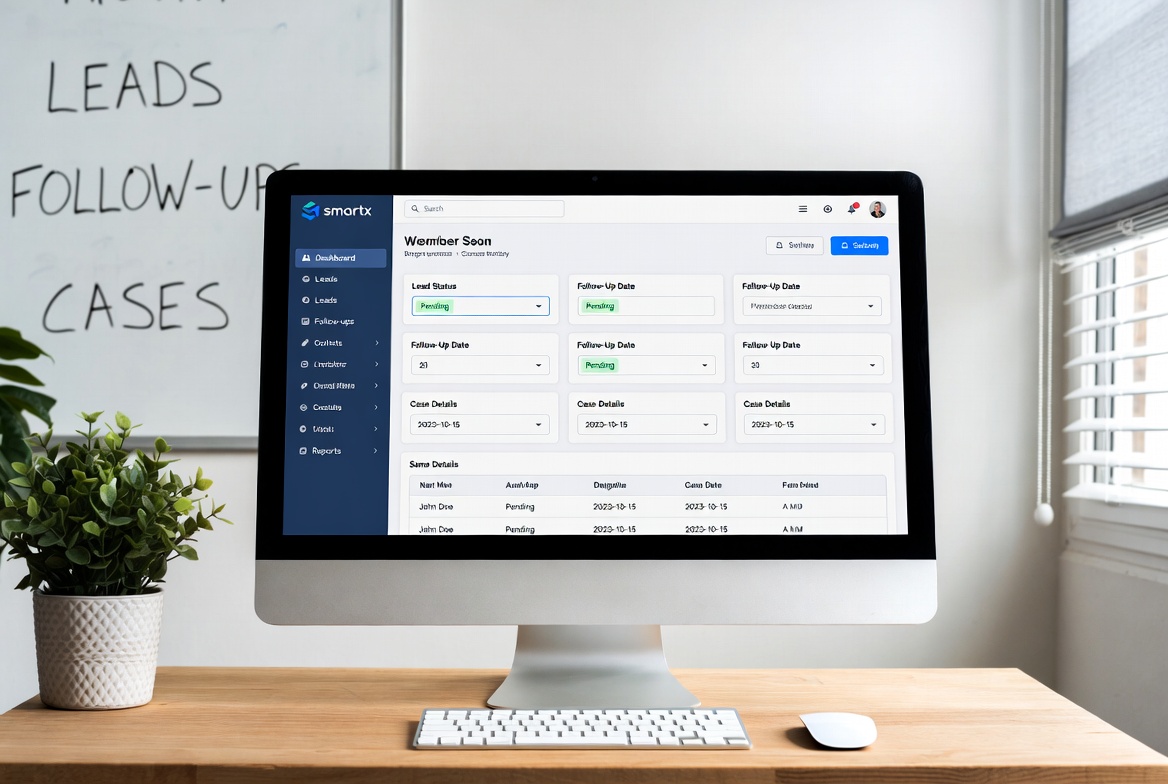Healthcare providers today face unprecedented challenges in managing patient relationships, streamlining operations, and delivering exceptional care while maintaining compliance with complex regulations. As the healthcare industry continues its digital transformation, healthcare CRM software has become an indispensable tool for medical practices, hospitals, and healthcare organizations seeking to optimize their patient management processes.
SmartX CRM, a leading provider of comprehensive CRM solutions across all industries, understands the unique requirements of healthcare providers. Our specialized healthcare CRM software combines advanced patient relationship management capabilities with industry-specific features designed to enhance care delivery and operational efficiency.
Understanding Healthcare CRM Software: The Foundation of Modern Patient Care
Healthcare CRM software represents a fundamental shift from traditional patient management systems. Unlike generic CRM solutions, healthcare-specific CRM platforms are designed to address the complex needs of medical practices, including patient data security, appointment scheduling, treatment tracking, and regulatory compliance.
The importance of selecting the right CRM software for healthcare cannot be overstated. Healthcare providers need robust systems that not only manage patient relationships effectively but also integrate seamlessly with existing healthcare infrastructure while maintaining the highest standards of data security and privacy protection.
Essential Features Every Healthcare CRM Should Possess
1. Comprehensive Patient Management and Electronic Health Records Integration
The cornerstone of any effective healthcare CRM software is its ability to provide comprehensive patient management capabilities. Modern healthcare providers require systems that can seamlessly integrate with Electronic Health Records (EHR) systems, creating a unified view of each patient’s medical history, treatment plans, and ongoing care requirements.
SmartX CRM’s healthcare solution offers robust patient profile management that consolidates medical histories, treatment records, insurance information, and communication preferences into a single, accessible dashboard. This integration eliminates data silos and ensures that healthcare providers have complete visibility into each patient’s healthcare journey.
The patient management module should include features such as:
- Complete medical history tracking
- Treatment plan documentation
- Medication management and alerts
- Allergy and medical condition tracking
- Insurance and billing information management
- Family medical history documentation
2. Advanced Appointment Scheduling and Calendar Management
Efficient appointment scheduling is crucial for healthcare operations. CRM software for healthcare must include sophisticated scheduling capabilities that can handle complex appointment types, provider availability, resource allocation, and patient preferences.
SmartX CRM’s appointment scheduling system offers:
- Real-time calendar synchronization across multiple providers
- Automated appointment reminders via email, SMS, and voice calls
- Online patient self-scheduling portals
- Waitlist management for canceled appointments
- Resource booking for equipment and facilities
- Multi-location scheduling for healthcare networks
The scheduling system should also support recurring appointments, emergency slot management, and integration with telehealth platforms to accommodate the growing demand for virtual consultations.
3. HIPAA Compliance and Advanced Security Measures
Healthcare organizations must prioritize data security and regulatory compliance. The healthcare CRM software you choose must offer robust security measures that ensure HIPAA compliance and protect sensitive patient information from unauthorized access.
Essential security features include:
- End-to-end data encryption for data in transit and at rest
- Role-based access controls with granular permissions
- Audit trails for all system activities
- Secure user authentication with multi-factor authentication
- Regular security updates and vulnerability assessments
- Data backup and disaster recovery capabilities
SmartX CRM implements enterprise-grade security measures that exceed industry standards, ensuring that healthcare providers can confidently manage patient data while maintaining regulatory compliance.
4. Automated Communication and Patient Engagement Tools
Effective patient communication is essential for building strong healthcare relationships and improving patient outcomes. Modern CRM software for healthcare should include automated communication tools that enable personalized patient engagement across multiple channels.
Key communication features should include:
- Automated appointment reminders and confirmations
- Patient education material distribution
- Prescription and medication reminders
- Follow-up care instructions and scheduling
- Health screening and preventive care reminders
- Emergency communication capabilities
- Multi-language support for diverse patient populations
SmartX CRM’s communication module supports email, SMS, voice calls, and secure patient portals, ensuring that healthcare providers can reach patients through their preferred communication channels while maintaining message consistency and timing.
5. Comprehensive Reporting and Analytics Dashboard
Data-driven decision making is crucial for healthcare organizations seeking to improve patient outcomes and operational efficiency. Healthcare CRM software must provide comprehensive reporting and analytics capabilities that offer insights into patient care patterns, operational performance, and business metrics.
Essential reporting features include:
- Patient satisfaction and engagement metrics
- Appointment scheduling and cancellation analytics
- Treatment outcome tracking and analysis
- Revenue and billing performance reports
- Provider productivity and utilization reports
- Patient retention and acquisition analytics
- Compliance and quality assurance reports
SmartX CRM’s analytics dashboard provides real-time insights with customizable reports that help healthcare administrators make informed decisions about resource allocation, staff scheduling, and patient care strategies.
6. Seamless Integration with Healthcare Systems and Third-Party Applications
Healthcare organizations rely on multiple software systems for different operational aspects. The ideal CRM software for healthcare should offer seamless integration capabilities with existing healthcare infrastructure, including EHR systems, billing software, laboratory information systems, and medical imaging platforms.
Integration capabilities should include:
- EHR system synchronization for complete patient records
- Medical billing and insurance claim processing integration
- Laboratory and diagnostic test result imports
- Prescription and pharmacy management system connectivity
- Medical device and monitoring equipment integration
- Telehealth platform synchronization
- Marketing automation and patient outreach tool integration
7. Mobile Accessibility and Cloud-Based Architecture
Modern healthcare providers require access to patient information and system functionality from any location and device. Healthcare CRM software should offer robust mobile applications and cloud-based architecture that enables secure access to critical information whether providers are in the office, at the hospital, or providing care remotely.
Mobile features should include:
- Secure mobile applications for iOS and Android devices
- Offline functionality for areas with limited connectivity
- Real-time synchronization across all devices
- Mobile appointment scheduling and management
- Secure messaging and communication tools
- Patient record access and updates
- Prescription and treatment plan management
8. Customizable Workflows and Process Automation
Every healthcare organization has unique operational requirements and workflows. The CRM software for healthcare you select should offer extensive customization options that allow you to adapt the system to your specific processes rather than forcing you to change your established procedures.
Workflow customization should include:
- Custom field creation for specialized data collection
- Automated task assignments based on patient conditions or appointments
- Customizable approval processes for treatments and prescriptions
- Automated follow-up scheduling based on treatment protocols
- Custom reporting and dashboard configurations
- Personalized user interfaces based on role and responsibility
9. Patient Portal and Self-Service Capabilities
Empowering patients with self-service capabilities improves satisfaction while reducing administrative burden on healthcare staff. Modern healthcare CRM software should include comprehensive patient portal functionality that enables secure access to health information and services.
Patient portal features should include:
- Secure login with multi-factor authentication
- Medical record and test result access
- Appointment scheduling and cancellation capabilities
- Prescription refill requests and medication management
- Secure messaging with healthcare providers
- Educational resource access and health information
- Billing and payment processing capabilities
- Health questionnaire and screening tools
10. Scalability and Growth Support
Healthcare organizations evolve and grow over time, requiring CRM software for healthcare that can scale alongside their expanding needs. The system should accommodate increasing patient volumes, additional providers, new locations, and enhanced functionality without requiring complete system replacements.
Scalability considerations include:
- Flexible user licensing and pricing models
- Multi-location and multi-provider support
- Integration capabilities with new technologies and systems
- Performance optimization for large patient databases
- Customization options for specialized healthcare services
- Support for healthcare network and partnership management
Industry-Specific Considerations for Healthcare CRM Selection
Specialty Practice Requirements
Different medical specialties have unique requirements for healthcare CRM software. Cardiology practices need different features than dermatology clinics or mental health providers. SmartX CRM offers specialized modules and customizations for various healthcare specialties, ensuring that providers can access the specific functionality they need for their practice type.
Regulatory Compliance Beyond HIPAA
Healthcare organizations must comply with various regulations beyond HIPAA, including state health department requirements, Medicare and Medicaid regulations, and specialty-specific compliance standards. The CRM software for healthcare you choose should support comprehensive compliance management and reporting capabilities.
Integration with Healthcare Networks and Partnerships
Many healthcare providers participate in healthcare networks, accountable care organizations (ACOs), and partnership arrangements that require data sharing and collaborative care coordination. Modern healthcare CRM software should support these collaborative relationships while maintaining appropriate security and privacy controls.
The SmartX CRM Advantage: Comprehensive Solutions for All Industries
While this guide focuses on healthcare CRM software, it’s important to note that SmartX CRM develops comprehensive CRM solutions for all industries. Our experience across diverse sectors enables us to bring best practices and innovative features from other industries into our healthcare solutions, creating more robust and efficient systems.
Our multi-industry expertise allows us to:
- Implement proven strategies from other customer-focused industries
- Develop innovative features that address common business challenges
- Provide comprehensive training and support based on extensive implementation experience
- Offer cost-effective solutions through shared development resources
- Maintain cutting-edge technology through continuous innovation across all sectors
Implementation Best Practices for Healthcare CRM Software
Planning and Preparation Phase
Successful healthcare CRM software implementation requires thorough planning and preparation. Organizations should conduct comprehensive needs assessments, identify key stakeholders, and establish clear implementation timelines and milestones.
Key planning considerations include:
- Current system audit and data migration planning
- Staff training and change management strategies
- Integration requirements with existing healthcare systems
- Compliance and security requirement documentation
- Performance metrics and success criteria definition
Training and User Adoption Strategies
The success of any CRM software for healthcare implementation depends on user adoption and effective utilization. Healthcare organizations should invest in comprehensive training programs that address different user roles and responsibilities while providing ongoing support and resources.
Training strategies should include:
- Role-based training modules for different user types
- Hands-on practice sessions with realistic patient scenarios
- Documentation and quick reference guides
- Ongoing support and refresher training opportunities
- User feedback collection and system optimization
Data Migration and System Integration
Migrating patient data from existing systems requires careful planning and execution to ensure data integrity and minimize operational disruption. Healthcare CRM software vendors should provide comprehensive migration services and support throughout the transition process.
Future Trends in Healthcare CRM Technology
Artificial Intelligence and Machine Learning Integration
The future of healthcare CRM software will increasingly incorporate artificial intelligence and machine learning capabilities that can predict patient needs, optimize scheduling, and identify potential health risks before they become critical issues.
AI-powered features will include:
- Predictive analytics for patient health outcomes
- Automated appointment scheduling optimization
- Intelligent patient communication and engagement
- Risk assessment and preventive care recommendations
- Clinical decision support integration
Telehealth and Remote Care Integration
The healthcare industry’s shift toward telehealth and remote care delivery requires CRM software for healthcare that can seamlessly integrate virtual care capabilities with traditional in-person services.
Telehealth integration features will include:
- Virtual appointment scheduling and management
- Remote patient monitoring integration
- Secure video conferencing and communication
- Remote prescription and treatment plan management
- Virtual care quality metrics and reporting
Advanced Analytics and Population Health Management
Future healthcare CRM software will provide advanced analytics capabilities that support population health management initiatives and value-based care delivery models.
Advanced analytics will include:
- Population health risk stratification
- Care gap identification and management
- Quality measure tracking and reporting
- Cost-effectiveness analysis and optimization
- Social determinants of health integration
Measuring Success: Key Performance Indicators for Healthcare CRM
Patient Satisfaction and Engagement Metrics
Successful healthcare CRM software implementation should result in measurable improvements in patient satisfaction and engagement. Key metrics include appointment scheduling efficiency, communication response times, and overall patient experience scores.
Operational Efficiency Improvements
Healthcare organizations should track operational metrics that demonstrate the impact of CRM software for healthcare on practice efficiency, including appointment utilization rates, staff productivity measures, and administrative cost reductions.
Clinical Outcome Improvements
The ultimate measure of healthcare CRM success is its impact on clinical outcomes and patient health improvements. Organizations should track metrics related to treatment adherence, preventive care completion, and overall patient health indicators.
Conclusion: Choosing the Right Healthcare CRM Partner
Selecting the appropriate healthcare CRM software represents a critical decision that will impact patient care delivery, operational efficiency, and organizational success for years to come. Healthcare providers must carefully evaluate their specific needs, compliance requirements, integration capabilities, and long-term growth plans when making this important technology investment.
SmartX CRM offers comprehensive CRM software for healthcare solutions that address the complex needs of modern healthcare organizations while providing the flexibility and scalability required for future growth. Our industry expertise, combined with our commitment to innovation and customer success, makes us an ideal partner for healthcare organizations seeking to optimize their patient relationship management capabilities.
The healthcare industry continues to evolve rapidly, driven by technological advancement, regulatory changes, and shifting patient expectations. Organizations that invest in robust healthcare CRM software today will be better positioned to adapt to future challenges while delivering exceptional patient care and maintaining operational excellence.
By focusing on the essential features outlined in this guide and partnering with an experienced CRM provider like SmartX CRM, healthcare organizations can transform their patient relationship management capabilities and achieve sustainable success in an increasingly competitive healthcare marketplace.
Whether you’re a small medical practice looking to streamline patient communications or a large healthcare network seeking to optimize operations across multiple locations, the right CRM software for healthcare can provide the foundation for improved patient outcomes, enhanced operational efficiency, and sustainable business growth.
For more insights on CRM digital transformation and lead management strategies, explore our comprehensive resources and guides.
Contact SmartX CRM today to learn more about our comprehensive healthcare CRM solutions and discover how we can help your organization achieve its patient care and operational objectives through innovative technology and dedicated support services.





Leave a comment: